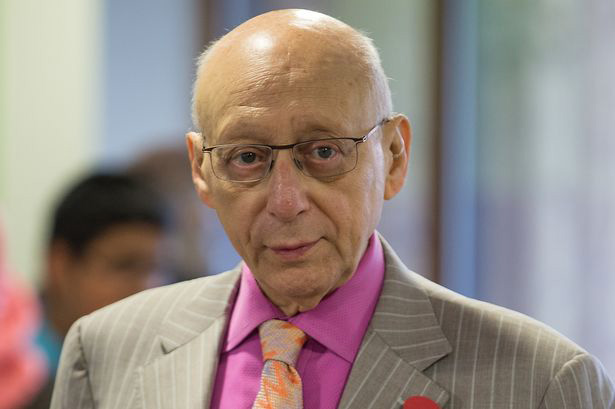Australia/Israel Review
Europa Europa: Pathologies of Hatred
Mar 30, 2017 | Douglas Davis

Sir Gerald Kaufman was more than just another veteran Labour politician. Having entered the House of Commons in 1970, he was the longest-serving parliamentarian of any political hue and, as such, gloried in the title “Father of the House.” And, as an Orthodox Jew, he should have been revered by the Jewish community. Instead, when he died last month aged 86, not a tear of sadness touched the cheek of British Jewry.
Kaufman could barely mention the word “Israel” without invoking the Nazis, and his call for sanctions and boycotts against the Jewish state came more than a decade before such sentiments gained traction within the anti-Israel industry. If his loathing of Israel touched shocking depths (he once compared Hamas terrorists to Jewish fighters in the Warsaw Ghetto), his antisemitism was uncontrollable. When a pro-Israel fellow-Jewish Labour MP rose to speak in the House, his response was a petulant stage-whisper that rang around the chamber: “Here we go, the Jews again.”
But two memorable comments, uttered several years ago, were so outrageous they should have ended his political career: the first was his assertion that Israel used the Holocaust to justify the killing of Palestinians; the second was that “Jewish money” was being used to corrupt the Conservative government.
What earned Kaufman’s immunity was that Kaufman himself was Jewish. Which raises some tough questions: How could a Jew lend legitimacy to such canards? How could a Jew wish such harm on the Jewish state and his co-religionists? How could a Jew be antisemitic?
Jewish antisemites tend to operate on the left of the political spectrum. And they tend to be prominent in universities, non-governmental organisations and in the professions, which they often use as platforms for initiating campaigns aimed at excoriating Israel. Some adopt the tropes of antisemitism in an attempt to defend themselves or to deflect antagonism in environments of hostility. More commonly, though, they trade their Jewish identity for the prospect of rewards – acceptance and promotion – within their wider social circles.
There are few conventional tools for describing the phenomenon of Jewish antisemitism. It is, after all, relatively rare. Being Jewish implies far more than being religious and those who turn on their Jewishness are not, therefore, simply demonstrating a loss of religious faith: they are abandoning their connection to an ancient history, excising themselves from their people and shedding their core personal identity. Jewish antisemitism is essentially a political phenomenon, yet political scientists appear incapable of offering coherent explanations. Instead, it is necessary to look to the field of psychology for descriptions of such behaviour.
One of the first to examine the psychopathology of Jewish antisemitism in the modern era was Professor George H. Mead (1863-1931), of the University of Chicago, who was a founder of the school of social psychology. Mead observed that when members of the majority expressed largely negative views of the minority, some among the minority might internalise the messages, leading to self-loathing. Building on Mead’s thesis, later researchers concluded that mere membership in an ethnic group, whether freely chosen or not, was sufficient to cause individuals to develop self-loathing responses if the group was negatively perceived by the majority.
A major discussion on the subject was initiated in the 1940s by German-born psychologist Kurt Lewin, who had transplanted himself from the University of Berlin to the Massachusetts Institute of Technology in 1933. With his German background, Lewin explained the denial of an individual’s identity as a form of coping with the oppression of a dominant group. The antisemitic Jew, he wrote, “will dislike everything specifically Jewish, for he will see in it that which keeps him away from [joining] the majority, for which he is longing.”
Most recently, Dr. Kenneth Levin, a clinical instructor of psychiatry at the Harvard Medical School, perceived a common thread running through Jewish history: some Jews, he wrote, embraced the indictments of their besiegers, however bigoted and outrageous, in the hope of “reforming themselves and assuaging the hostility of their tormentors.”
On an individual level, he regarded such behaviour as an expression of the psycho-dynamics which were often found among abused children. “According to this interpretation, the abusers tell their young victims that the abuse is punishment for being ‘bad’, and the children, in their naïveté, accept this at face value,” he wrote.
Levin added that, “a broader occurrence of people under stress adopting the perspectives of their tormentors has been popularly recognised as the ‘Stockholm Syndrome'” – so called after a group of hostages who displayed sympathy for a gang of failed Swedish bank robbers after being held in captivity for six days in 1973.
Pity that Gerald Kaufman failed to recognise that he, like other antisemitic Jews, was likely suffering from a potentially curable psychological disorder.
Tags: Anti-Zionism, United Kingdom






